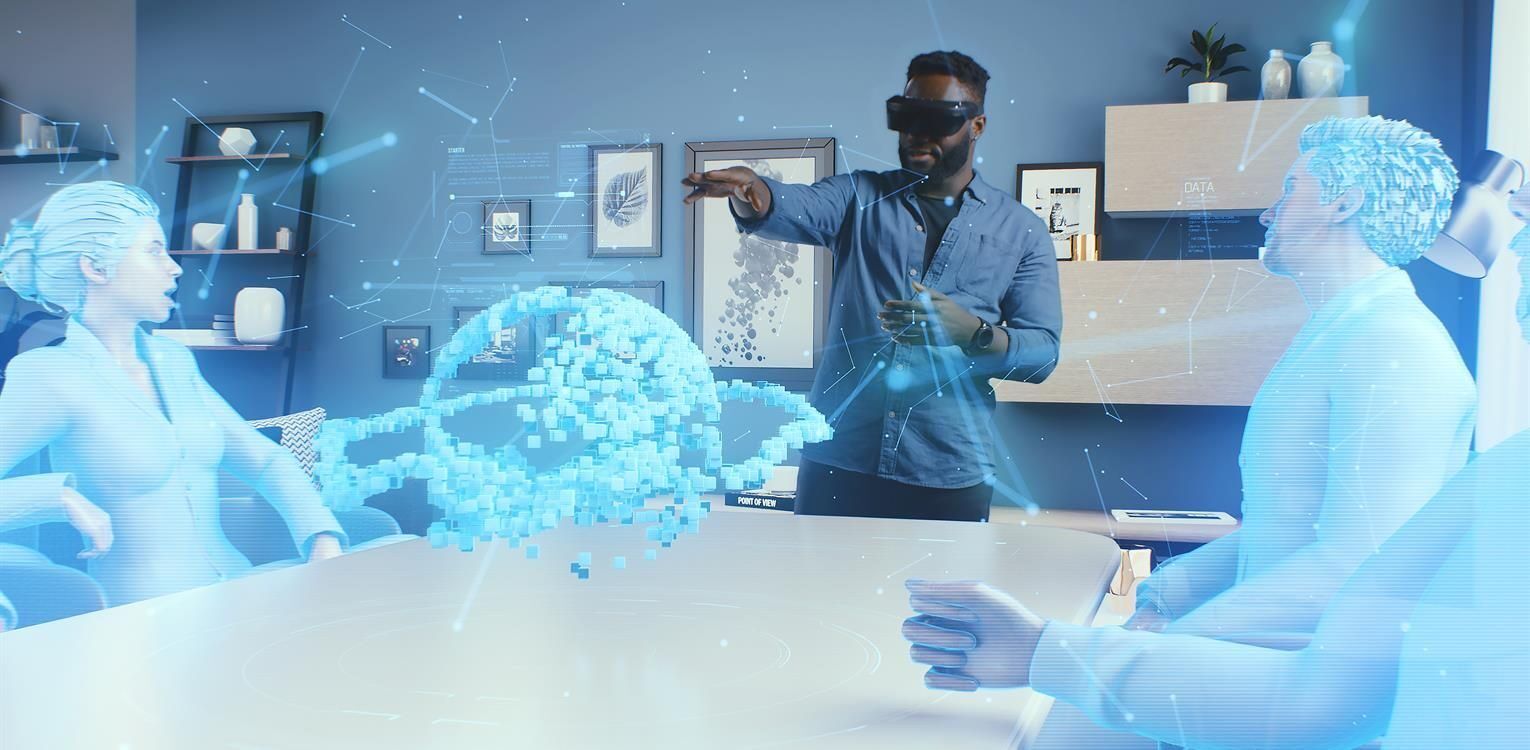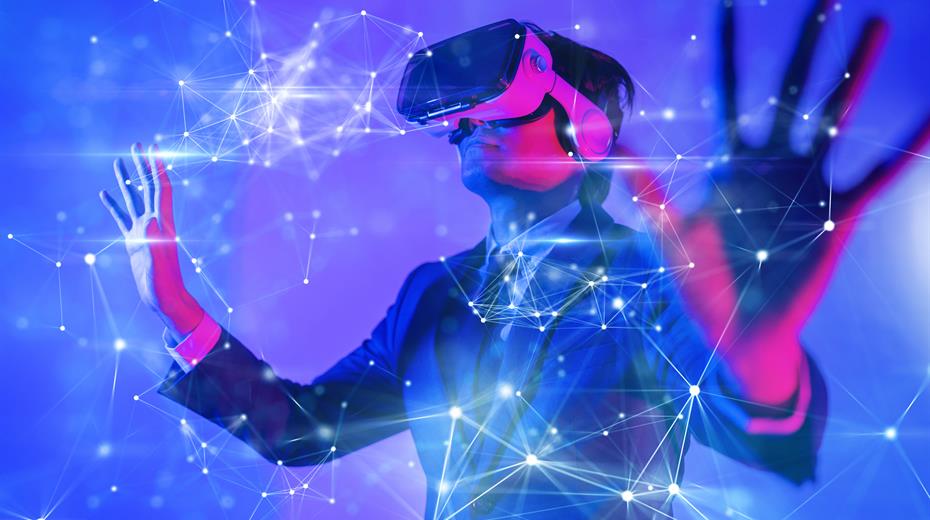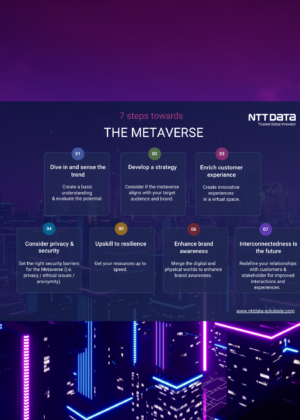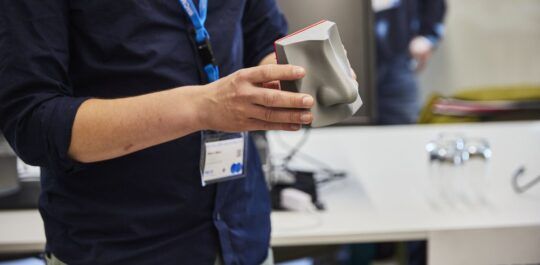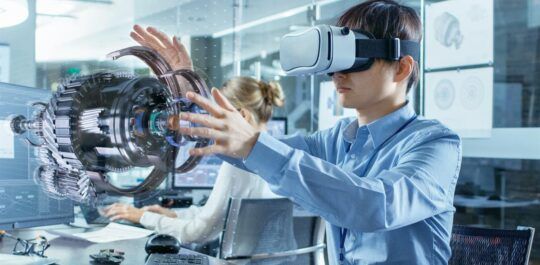We put together 12 examples of metaverse use cases and it is just a selection of the most important industries right now.
1. Metaverse gaming: the future of fun?
Metaverse gaming can immerse players with virtual reality (VR) and augmented reality (AR). There are innovations like blockchain, cryptocurrencies and Non-Fungible Tokens (NFTs), as users can play to earn and purchase digital assets.
In this space, a study found $1.3 billion of investment in Q3 2022 alone. Big movers include Epic Games, Decentraland, and Axie Infinity (with a claimed 2.8 million daily active players). With a deeper social environment and enhanced reality, metaverse games represent a real business use case for the future.
2. Travel and tourism in the metaverse
It’s possible the metaverse reshapes tourism. Through VR and AR, people could soon be traveling virtually from the comfort of home, experiencing sights and sounds they otherwise thought impossible. Ariva Wonderland is at the cutting edge, offering virtual tours of real places (like the Statue of Liberty).
Alternatively, a metaverse use case could see physical travelers taking virtual tours of destinations before booking. And once there, metaverse tech could replace traditional tour guides for enhanced experiences at different attractions.
3. Using the metaverse to launch learning
The metaverse could leave more lasting impressions of the wonders of the world on students. Those studying history could be transported to a different time and place using VR. Others could experience space up close and personal. Medical students could practice surgery virtually, bringing better education outcomes through new ways of learning.
Microsoft Mesh offers mixed reality using its Hololens, so people can learn remotely from different locations using a more engaging format, with 3D collaboration and interaction.
4. Remote working in the digital age
Here’s a metaverse example with incredible potential: digital office spaces where people work from home – feeling more connected and collaborating better with their peers. Here, SoWork is looking to take workplace communication to a whole new level.
Even for workplaces that don’t adopt a fully digital space, there’s the potential for a hybrid model, incorporating AR and VR-assistance for meetings. We’ll also likely see the growth of VR-based training, with theory and hands-on learning combined, even for remote participants.
5. Has metaverse real estate arrived?
The metaverse could make things simpler with virtual property tours that save everyone time and effort.
But metaverse use cases need not be confined to physical properties. With digital property available on platforms like Decentraland (including one selling for millions), we’ve seen the birth of virtual real estate companies like The Metaverse Group. With corporations getting in on the act and starting to buy up digital space, it seems like early days for this part of the industry.
6. Can the metaverse improve healthcare?
Healthcare is ripe for disruption and innovation from the metaverse. It could take telemedicine to the stratosphere, with specialists around the globe collaborating in real time.
Remote consultations brought to life with VR, XR (extended reality) and haptics. Digital twin technology to test treatments on virtual patients. Plus other metaverse use cases for surgeons, particularly in areas like robotics.
It’s a use of the metaverse that could mean more effective healthcare (including preventing and treating diseases), at lower cost.
7. Metaverse opportunities in banking and finance
By embracing the metaverse, banks may soon offer services in virtual reality, giving customers the convenience of direct, personal interactions from the comfort of home.
American Express sees potential, filing trademarks for financial services in the virtual world. Meanwhile, HSBC (in The Sandbox) and JP Morgan Chase (on Decentraland) have both gone into the metaverse.
And we’ll likely see other developments, as people look to make transfers between virtual and real assets more frequently.
8. Utility companies look to modernize in the metaverse
The metaverse may have a significant impact on the energy sector. Utility companies could vastly improve their customer interactions, by offering things like virtual energy advice. They could also be less affected by location, with remote monitoring and maintenance to more efficiently handle things like offshore wind farms.
Staff might receive virtual training and make site visits using VR. Network operators could also work together within municipal infrastructure in a way not thought of before.
9. The future of social media and entertainment?
Perhaps thanks to Mark Zuckerberg’s Facebook rebrand to Meta, social media could be the metaverse example people think of first. And it might just be the future of social, with digital interactions brought to life in 3D virtual spaces.
We also expect more advanced entertainment, blending the physical and virtual. Stars like Travis Scott have held virtual concerts. Cinemas may develop their offerings to awaken more senses. Plus we could get digital enhancements at theme parks and sporting events.
10. The public sector could deliver using the metaverse
This could be huge for the public sector, with likely metaverse use cases in city marketing, business development and service delivery.
Governments have an opportunity to transform the way they interact with their people. It’s a chance to move the needle with transparency and efficiency… rather than simply recreating existing negative experiences in the virtual world.
This year, South Korea’s capital, Seoul, launched a project that could become a blueprint for how cities can make use of the metaverse. In addition, we’ve seen Barbados create a digital embassy, and Santa Monica, California, became the first US city to enter the metaverse, too.
11. Making sweeping changes in the world of manufacturing
The metaverse (combined with IoT – Internet of Things) might just revolutionize manufacturing. Using digital twins and avatars, companies can get detailed information about their operations, viewing complex machines and systems within seconds. That way, they’ll get a faster view of their size, how they function, and how they fit into the production line. We might even see a whole shopfloor created in the metaverse, then moved into the real world.
Information learned in the metaverse could also be applied to the real world more effectively than traditional methods (like training videos). For example, with a defective machine, a technician might troubleshoot with customer service through digital twin technology. With both using a 3D model and real-time production data, customer service would lead a step-by-step instruction of the maintenance process. Making things clearer, quicker, and easier.
These types of advances are made possible by high-performance AI algorithms and real-time data transmission (including 5G/6G networks), which enable digital twins to function correctly in the industrial metaverse.
As long as physical reality is replicated in the digital space, we could see leaps forward in efficiency. Plus, internationally distributed teams should collaborate better, communicating more freely while working on 3D drawings visualized in the metaverse.
12. A retail industry ripe for disruption?
We’re seeing exciting metaverse trends in retail, particularly in the fashion industry. Gucci launched ‘Gucci Town’ on Roblox, offering users an immersive experience where they can purchase digital-only versions of their products. With NFTs proliferating in the marketplace, this could become a growth area within fashion, as other designers look to capitalize.
Following increased volume of online shopping in recent years, companies can look to the metaverse to enhance the customer experience further. This has the potential to lead brands towards creating realistic experiences using AR and VR, so that customers can feel like they’re in-store from the comfort of home.
